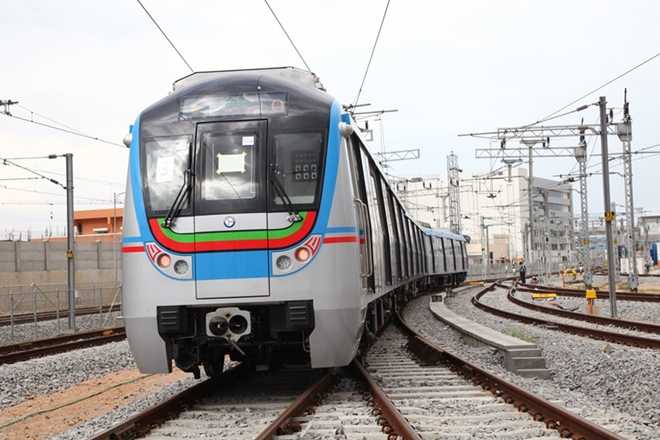Procedure and Documentation required for Apartment redevelopment
 |
 |
Redevelopment of apartment complex or residential or commercial premises has now assumed great significance. “Redevelopment” refers to the process of reconstruction of the residential/commercial premises by demolition of the existing structure and construction of a new structure. Today the societies are opting to go for redevelopment than repair. For redevelopment, builder enters into a development agreement with the Society. Entering into such development agreement does not vest any title of the land in favor of the developer, but merely authorizes the developer to develop the land.
Advantages of Redevelopment
In redevelopment, members get benefits in terms of money as well as additional area. Today the societies are opting to go for redevelopment than repair for the following reasons.
- The repair work only increases the life of the building by 3 to 4 years but the problems can re-occur and members have to spend money again for repair works. In case of redevelopment, it gives a new building for which no major repairs are required for a longer period. Redevelopment is recommended for buildings which are older than 15-20 years.
- The old buildings are designed with old construction norms and hence cannot withstand new climatic and geographic conditions. In redevelopment, a new building is constructed which can withstand new climatic and geographic conditions considering that the latest safety measures are adopted. In redevelopment, the builder can provide additional amenities like lift, gym, swimming pool etc.
- Main disadvantage of repairing a building or apartment is that members have to spend money. But in redevelopment, members get benefits in terms of money as well as additional area.
- Another disadvantage of repair of building is that in old building the steel inside concrete beams and column starts corroding after 15-20 years which cannot be treated in repairs. This problem does not arise in redeveloped building as the building is reconstructed by demolishing existing old building and its material.
Procedure and Documentation required
Many years ago, developers who were not keen on purchasing land and developing the same since that would have involved huge stamp duty cost on transfer of land. Instead, redevelopment of an old building reduces stamp duty to a significant extent. For this, developers enter into a development Agreement with the Society. One of the benefits of redevelopment is that the lifestyle of old residents improves as they receive better, larger and safer spaces at no cost. Before commencing re-development, the following steps are required to be taken.
- The builder approaches the owner of the land and, instead of buying the land and paying a large amount towards the purchase. He enters into an agreement with the owner for permission to develop the land on the owner’s behalf. The consent of the society members must be obtained during society meetings. According to an important feature in the guidelines (by state co-operative department), a redevelopment scheme can be approved by the general body only if three-fourths of the society members are present at the meeting.
- On or before the execution of the agreement, the society should hand over to the developers, the copy of the conveyance deed in respect of the society’s property, along with certified copies of the property register card, index II, latest electricity bill, water bill, municipal tax bill, N.A. tax bill in respect of the society’s property and also, the copy of the registration certificate of the society.
- The list of members with their choice of new flats and parking area entitlement among others as agreed upon in the new building, should be prepared. The terms about the provision of temporary alternate accommodation to the members during the construction period should also be made clear in the agreement.
Things you need to understand
Redevelopment looks attractive with realty prices moving northward. The process of redevelopment isn’t as easy as it sounds. The builders/developers enter into a development Agreement with the Society. Entering into such development agreement does not vest any title of the land in favor of the developer, but merely authorizes the developer to develop the land. The process comes with a set of rules, procedures and implications which you need to understand.
 |
 |
- Loan or Mortgaged Property: In case of a mortgaged flat or property, the builder can take up the mortgage as he would be demolishing the house to build a new construction. Till the new construction is in place for the owner to reoccupy, the liability would be on the developer as far as the lien is concerned. Once the borrower has occupied his new house, the lien would be reverted to the actual owner.The builder can avail of a loan for development either by mortgaging the property or if the bank provides a loan for the redevelopment. There is no written rule in this regard as the concept of redevelopment is at a nascent stage and is evolving with time. Hence, every resident should clarify his own doubts with the developer and ensure the agreement clearly spells out these facts.
- Tenant and Owner: The Tenant and Owner are two sides of the same coin. As per several high court judgments so far, the valuation has been in favor of the tenant. In numerical terms, 2/3rd of the compensation have been directed towards the tenants and 1/3rd to the landlord. If the actual owner/landlord is servicing a lien on the ‘to be redeveloped house’, it is restricted to the value of the apartment and is given a separate treatment. In such cases, 1/3rd minus the lien is directed towards the landlord and 2/3rd minus the lien is enjoyed by the tenant.
- NRI Property: There can be owners or members whose flats are locked and owner residing abroad. This is more of an administrative element. He may not be physically present to be part of the documentation and negotiations. But he can always give the power of attorney to a close relative or trustworthy friend who can take crucial decisions on his behalf. There are two types of power of attorney: “general” and “special” (or limited). Under the general power of attorney, your relative/friend has been empowered with the right to carry out all legal acts on your behalf. It doesn’t restrict him/her to a particular transaction. On the other hand, the authority is restricted to a particular transaction or Act under special power of attorney. Hence, if you are skeptical about outsourcing the decision making to a third party, you can opt for a limited power of attorney.
Rights in a Redevelopment Project
A developer usually assures a certain amount of cash, an additional area or a mix of both. He may give an alternative accommodation for your temporary stay, foot your rentals or give you a monthly compensation, within which you have to find your temporary accommodation. Once the builder gives a detailed plan, the society members should consult real estate consultants and the developer about the likely future price. Based on this, the society members have to do some calculations to check on the commercial gains.
There are two important things in a resident-developer arrangement. One is the commercial angle and the other is the technical angle. In fact, at the agreement stage itself, the society residents should appoint a lawyer to draft and finalize the agreement. The society members should ensure the timely completion of the project, which is the most important detail to be mentioned in the agreement. The technical angle refers to the finished good. It should meet specifications and quality as mentioned in the agreement.
The Society should have a valid conveyance deed of land and building in its favor. Once the society members’ consent is obtained, the society should submit the documents to the developer. It should contain technical details such as the number of open car parking space, stilt car parking and closed parking allotted to existing society members. The development agreement should spell out the broad specifications and amenities to be offered in the new building. The agreement should mention the schedule of payments, tentative date for vacating the flats, the time period for completion, penalty clause if the developer fails to meet the deadline etc.
Complications in case of redevelopment
- Inability to assemble all members of the society at a single point of time
- Flats or apartment may be mortgaged to a bank or a financial institution.
- Some of the members may be interested in purchase of new flats at a discounted rate in the new building.
- Conveyance deed of the land and structure is not executed in favor of the society.
- The tax issues regarding redevelopment are not clear to the society.
- Expecting high compensation or price in the case of certain members who are not interested in staying in the new building
Redevelopment of apartment complex or residential or commercial premises has now assumed great significance. Today the societies are opting to go for redevelopment, than repair. In redevelopment, members get benefits in terms of money as well as additional area. Usually, redevelopment is a common occurrence among old properties. But in cities such as Bangalore, Chennai, Mumbai or Delhi, it’s common for a home buyer to buy used flats from the third or fourth sale if they are vying a particular suburb at a discounted price. The consent of three-fourths of the society members must be obtained during society meetings. While it may sound like a typical ‘win-win’ situation, the process of redevelopment isn’t as easy as it sounds. Inability to assemble all members of the society at a single point of time and conveyance deed of the land and structure not executed in favor of the society are major limitations in redevelopment of property.






